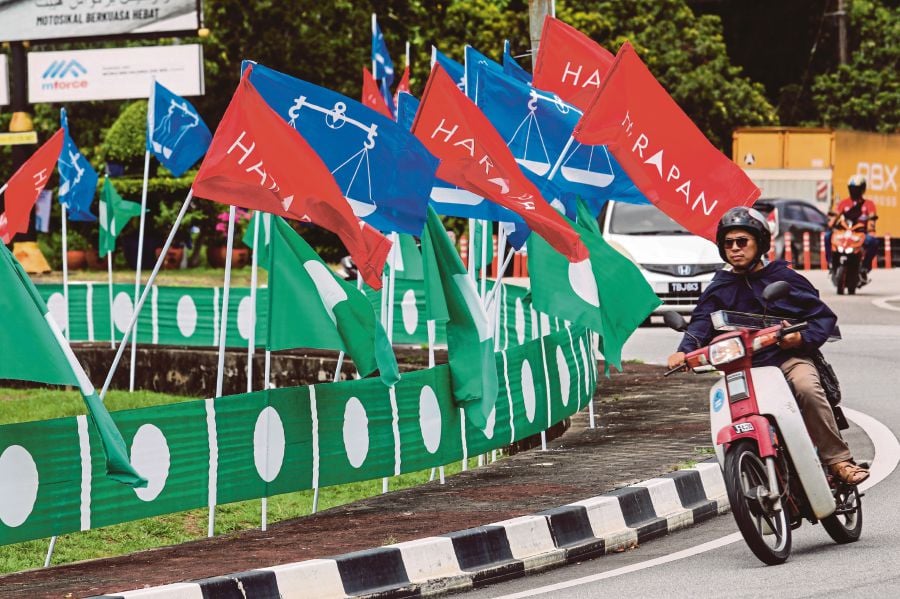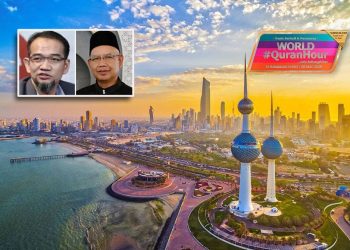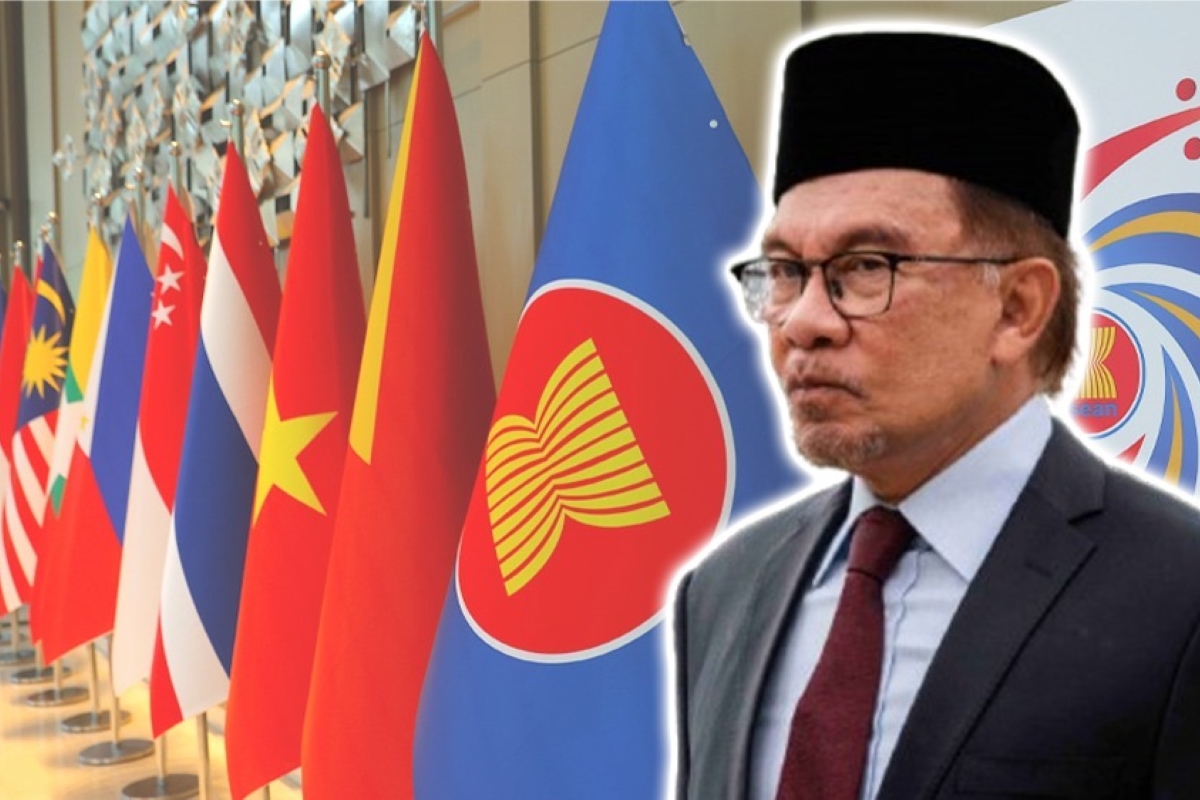3R ISSUES PLAYED UP
This state election is no longer about who secures the largest attendance at their ceramah or who manages to put up the most party flags in an area.
The epicentre of the war is being fought in the largest constituency in Malaysia — cyberspace.
Traditional campaigning approaches over the last few elections, including the recent 15th General Election (GE15), have been replaced by more modern methods such as tweets, Facebook posts and TikTok videos.
Even candidates who had previously shown an aversion to social media have since jumped on the bandwagon, posting videos of their campaign rounds on TikTok, Facebook and Twitter with trendy songs and hashtags.
However, there is a darker side to the use of social media.
Analysts believe that while many candidates use social media to push their policies, some are banking on emotion-based speeches and 3R (race, religion, and royalty) issues.
Experts believe that due to social media algorithms, the use of 3R issues, particularly religion, allowed some politicians to gain better traction among some segments of voters, particularly among Malays.
Universiti Teknologi Mara’s Centre of Media and Information Warfare Studies political analyst Dr Noor Nirwandy Mat Noordin says this is because the Malay population makes up the majority of the voting population and thus offers a wider base to reach out to.
He cited Pas, which had used TikTok to great effect in GE15, as a prime example.
He said it was not unusual for Pas’ videos, which were laced with religious elements and issues, to enter the algorithm of Malay viewers, as some of them would already be watching religious-based content on the platform.
The campaign materials, he said, would go in cycles, and voters would receive information from that party repeatedly, which might indirectly influence their voting decision.
“The algorithm cycle that they are exposed to will regenerate themselves. This would give Pas an advantage due to its religious and motivational elements.
“For these viewers, it is likely that Pas’ videos and campaign materials would be suggested to them by the algorithm, as they naturally tend to watch religious-based videos anyway.
“This gives Pas a slight advantage in terms of reach,” he said.
Analysts also believe that the use of 3R issues remains an attractive proposition for some political parties as it plays on emotions instead of issues.
Inspector-General of Police Tan Sri Razarudin Husain had cautioned all quarters, ahead of the state elections, against using 3R issues in their campaigns.
A number of Malay rulers have also issued decrees to similar effect.
But such content remained prevalent despite the warnings.
Last week, 24 police reports were lodged in Perak over a video on a Pas Facebook page that suggested that Sultan of Perak Sultan Nazrin Muizzuddin Shah had endorsed Pas.
The reports allege that the video used only part of a speech made by the sultan in 2013 and exploited the royal institution for political purposes.
International Islamic University Malaysia Associate Professor of Political Science Dr Syaza Farhana Mohamad Shukri said 3R issues were still being played up as they were the best strategy for politicians to lure voters who had a clear stance.
“Unfortunately, our political culture is still at a point where we’re not ready to discuss policy matters but rather race and religious politics.
“Politics is still based on basic needs. 3R issues are the easiest way to get votes in Malaysia.
“It is the best strategy to mobilise people who are leaning one way or another.
“Discussing policies might be able to win over those on the fence.
“A clear economic policy would be the most convincing for fence-sitters.”
However, Syaza Farhana said it remained to be seen whether such engagements could be translated into votes.
“I don’t think we can gauge voter turnout based on views online. Because online engagement is ‘easier’ and anyone can join in.
“It doesn’t mean all those who engage (in the content) are going to vote for the party.
“This is different from ceramah, where party supporters would make the effort to attend.”
Syaza Farhana said Malaysian voters tended to vote for the party over candidates, even in state elections.
“The thing with social media campaigning is that even if it is saturated (with campaign content), they’re looking at parties that are more popular on social media and not really the content.
“The youth may ‘think’ they’re learning from social media, but actually they are not because social media is not the best place to learn.”
Universiti Utara Malaysia political analyst Professor Dr Mohd Azizuddin Mohd Sani said that candidates who played up 3R issues might pay a heavy price.
“This time around, the people, especially young voters, are keen to know what political parties can offer to improve their lives.
“That is why Pakatan Harapan-Barisan Nasional announced their manifesto early on. Together with the Madani Economy policy, this can attract many voters, particularly the fence-sitters.
“Perikatan Nasional is banking on sentiments, like what they did in GE15, which I think may not be as effective this time.”
Traditional campaigning methods over the last few elections, including the recent 15th General Election (GE15), have been taken over by more modern methods such as tweets, Facebook postings and TikTok trends.
Even candidates who had previously shown an aversion to social media have since jumped on the bandwagon, posting videos of their campaign rounds on TikTok, Facebook, Twitter with trendy songs and hashtags.
However, there is a darker side to the use of social media. Analysts believe that while many candidates use social media to push their policies, some candidates are banking on emotion-based speeches and 3R (race, religion, and royalty) issues.
Experts believe that due to social media algorithms, the use of 3R issues, particularly those on religion, offers some politicians better traction among voters, particularly the Malay audience.
Universiti Teknologi Mara’s Centre of Media and Information Warfare Studies political analyst Dr Noor Nirwandy Mat Noordin said this is because the Malay population make up the majority of the voting population and thus, offers a wider base to reach out to.
He cited Pas, who had used TikTok to great effect in GE15, as a prime example.
He said it is not unusual for Pas’ videos, which are laced with religious elements and issues, to enter the algorithm of the Malay viewers as a portion would already watch religious-based issues on the platform.
The campaign materials, he said, would go in cycles and voters would receive information from that particular party repeatedly, which might indirectly influence their voting decision.
“The algorithm cycle that they are exposed to will regenerate themselves. This would give an advantage to Pas due to its religious and motivational elements.
“For these viewers, it is likely that Pas’ videos and campaign materials would be suggested to them by the algorithm as they naturally tend to watch religious-based videos anyway.
“This gives Pas a slight advantage in terms of reach,” he said.
Analysts also believe that the use 3R issues remain an attractive proposition for some political parties as it plays on emotions instead of issues.
Inspector General of Police Tan Sri Razarudin Husain had, ahead of the state elections, cautioned all quarters against using 3R issues in their campaigning. A number of Malay Rulers had also issued a similar decree.
Such cases remained prevalent despite the warnings.
Last week, 24 police reports were filed in Perak, calling for an investigation into a doctored video clip on a Pas Facebook page, which had suggested that Sultan Nazrin Shah of Perak had endorsed Pas.
The clip, taken from a speech made by the Sultan in 2013, was alleged to have exploited the royal institution for political purposes.
International Islamic University Malaysia Associate Professor of Political Science, Dr Syaza Farhana Mohamad Shukri said 3R issues are still being played up as it is the best
best strategy for politicians to lure in more votes among voters who already have a clear stance.
“Unfortunately, our political culture is still at a point where we’re not ready to discuss policy matters but more on race and religious politics. Politics is still based on basal needs.
“3R issues are actually the easiest way to get votes in Malaysia… it is the best strategy to mobilise people who are already leaning one way or another.
“Discussing policies might be able to win over those on the fence.. a clear economic policy would be the most convincing for fence sitters,” she said.
However, Syaza Farhana said it remains to be seen whether such engagements can be translated into votes.
“I don’t think we can gauge voter turnout based on views online. Because online engagement is “easier” and anyone can join in. It doesn’t mean all those who engage are going to vote for the party.
“This is different from ceramah where party supporters would make the effort to go and participate,” she said.
Syaza said Malaysian voters still tend to vote for the party over candidates even in state elections.
“The thing with social media campaigning is that even when it is saturated (with campaigning content), they’re (voters) are looking at parties that are more popular on social media and not really the content.
“The youth may “think” they’re learning from social media but actually they are not because social media is not the best place to learn,” she said.
Universiti Utara Malaysia political analyst Professor Dr Mohd Azizuddin Mohd Sani cautioned that candidates who play on 3R issues this time around might pay a heavy price.
“This time, the people, especially young voters, are keen to know what political parties can offer to improve their lives.
“That is why PH-BN had announced their manifesto early on. Together with the Ekonomi Madani policy, this can attract many voters particularly the fence sitters.
“PN is banking on sentiments like what they did in GE15, which I think may not be as effective this time,” he said.
ENDS
kredit: https://www.nst.com.my/news/politics/2023/08/939209/analysts-cyber-campaigns-more-targeted#google_vignette















